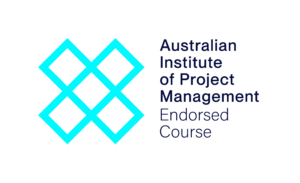
Estimating project costs is a critical skill to ensure a successful project, but allocating funds, estimating costs and calculating the project budget are all tasks that project managers dread. While budget and financial management is often delegated to the Finance department, project managers still need to be able to manage this process to keep everything in line.
The good news is that it’s not that hard – we’ve developed a simple 5-step approach to getting the very early estimates you need at project initiation right.
Estimating project costs involves a combination of science, logic, common sense and experience. There are several guiding principles to keep in mind when developing the initial budget estimates.
Preparation for Estimating Project Costs
- Focus on the costs factors that depend on the needs of the specific project. As an example, a building construction project will have quite different costs than an IT project to install a new network.
- Refer to cost estimates of similar projects in the past that were accurate.
- Seek out the opinions and feedback of project participants to get a broad spectrum of information, experience and opinion.
One of the most valuable tools you can have when estimating costs is experience. This doesn’t have to be your direct experience – unless your project is really obscure and/or unique then someone somewhere has probably calculated costs for a similar project or at least for a specific component or part of the project. Researching and communicating with your peers and network connections will set you up to make more accurate estimations.

Five Steps to Estimate your Project Costs
Once you’ve completed your research and are satisfied with your preparation, you can follow this simple, 5-step process:
- Estimate the cost of each high-level milestone.
Now the important point to remember here is that costs can be categorised as labour, material and other costs as appropriate. Some examples of cost factors include: Labour, labour rates: Material-Vendor/supplier: Quotes: Material – equipment hire/ platform site costs; other – training costs.
- Estimate any on-going maintenance and support costs.
So here you need to include any estimates for on-going maintenance and support costs if this is required for your project.
- Estimate the costs at the level of detail you understand.
If the project spans a long period of time, it is difficult to predict the estimate for work a year or more into the future. In this case provide an estimate for the entire project at a high level, and a detailed estimate for work for the next phase or period of time.
- Identify the project costs by the fiscal quarter (or other specified time period).
Determine the budgeting period based on the needs of your customer and the size of your project.
- Document the basis for the cost estimates.
This is important and often overlooked by new project managers. You need to identify the fundamental assumptions that you used to develop, calculate or explain the cost estimates. For example, the basis for calculating the labour cost might be a standard labour rate multiplied by staff hours. This is often referred to as your budget or estimates ‘narrative’. The name doesn’t matter but ensuring you file your handwritten notes and scribbled discussion points does. You need to know how you calculated your estimates later on when you’re ready to develop the more detailed budget and again when you monitor and control your project costs. So, make sure you keep your notes!
Get the practical skills and competencies you need to carry projets through to success with a project management qualification from the College for Adult Learning. Enquire today for more information.
AIPM-Endorsed Diploma
CAL has received endorsement for our Diploma of Project Management (BSB50820) and Diploma of Project Management (specialising in Construction) (BSB50820) courses from the Australian Institute of Project Management (AIPM), the premier, longest-serving body for project management in Australia.
Having passed a rigorous review by AIPM auditors, adding an AIPM-endorsed diploma to your repertoire demonstrates your commitment to project management professional development and the elevation of industry practices.






